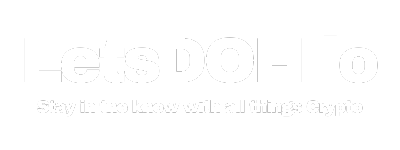The sudden shutdown of ZKX, a social derivatives trading platform on the Starknet layer-2 network, drew the ire of both investors and market makers.
The closure, announced on July 30 by founder Eduard Jubany Tur, cited a lack of economic feasibility for the project as the primary reason. However, the abruptness and lack of communication accompanying that decision left many stakeholders blindsided.
Amber Group shares perspective
Amber Group, a key market maker for ZKX (ZKX), has expressed shock at the sudden cessation of the platform’s activities. Recently, the company took to X to share its perspective, decrying the lack of communication from ZKX.
In light of recent developments with ZKX, while we honor our contractual confidential obligations with our clients including ZKX, we’d like to share our perspective and necessary information as an investor and market maker to promote transparency and support the community. We… https://t.co/Erx038azsH
— Amber Group (@ambergroup_io) August 3, 2024
In the X post, the firm revealed it had been involved in ensuring liquidity for ZKX’s token generation event on June 19. To facilitate this, Amber Group received a loan of 2 million ZKX tokens, with no additional fees attached.
Amber claimed that despite a lack of organic buying interest, it continued to purchase ZKX tokens to maintain liquidity, even as prices declined.
However, on June 24, ZKX requested the return of 1 million tokens to reduce circulation and bolster community confidence. Amber Group says it complied, thereby reducing its loan to 1 million tokens.
Despite the challenges, by the time ZKX announced its shutdown, Amber had accumulated a total of 3 million ZKX tokens after it hoovered up an additional 2 million from the open market in a bid to provide consistent liquidity.
In its post, Amber Group emphasized the importance of transparency, noting that the lack of communication from ZKX during the entire process set a concerning precedent for the industry.
HashKey decries lack of transparency
Other investors have also echoed sentiments similar to Amber’s. For instance, HashKey Capital has criticized ZKX for its failure to provide transparent financial details and operational plans.
The venture capital firm also posted on X, lamenting the erosion of trust and confidence due to ZKX’s unresponsive communication and the mishandling of the situation by Tur.
Much like other investors, we experienced a lack of transparency and accountability from @zkxprotocol in disclosing their financials, allocation of funds and operational plans.
Additionally, their reluctance to communicate was disappointing, and the manner in which the founder… https://t.co/4EyaUdEp06
— HashKey Capital (@HashKey_Capital) August 2, 2024
Ye Su, another investor, also voiced frustration over the lack of heads-up before the shutdown, stating that the ZKX team refused to provide financial or spending details.
To add fuel to the fire, renowned blockchain investigator ZachXBT also made their feelings known about the ZKX debacle, suggesting it was a rug pull.
Despite the backlash, Henri, the director of developer relations at the Starknet Foundation, defended ZKX, arguing that the team had made significant contributions to the ecosystem and that labeling them as scammers was unfair.
Henri suggested that ZKX’s abrupt closure stemmed from poor decision-making rather than ill intent as alleged by ZachXBT.
ZKX founder offers clarification
Adding to the discourse, Tur defended his position in a detailed X post addressing the allegations.
Tur clarified that all user funds previously held by the project had been returned, with more than 95% of withdrawals completed.
New Statement
There have been many statements being issued by multiple parties, we wanted to address some of these concerns including the usage of funds, TGE performance, and so forth:
Current State of Sunset:
All user’s funds have been returned. As of today, more than 95%…
— Eduard (@0xEduard) August 1, 2024
He also acknowledged the ZKX team’s underestimation of operational costs, including maintaining a layer-3 blockchain and market-making expenses, which significantly exceeded revenue.
Tur detailed the financial strains and efforts to maintain liquidity, highlighting that the project’s cumulative fundraising of $7.6 million over four years was not sufficient to sustain operations.
Additionally, the ZKX founder explained the challenges faced during his company’s token-generating event, including low demand and significant selling pressure, which he claimed contributed to the token’s poor performance.
He emphasized that the team acted in good faith, attempting to balance the interests of all stakeholders and exploring alternatives to sustain the project.
